Representation on television matters. As a kid, I loved shows like Sabrina the Teenage Witch, Xena Warrior Princess, Buffy, As Told by Ginger, and Friends. In my head I could be Buffy, I could be Xena, I could be Monica, Rachel or Phoebe… I could be any number of these interchangeable white-female characters. I’m white, cisgender, and able-bodied so there were lots of relatable characters on television for me to idolise.
But what if you’re disabled, trans, queer, a person of colour, or any combination of these things? Sure, there are universally recognisable tropes, cliches, and classic storylines like rags to riches and the hero’s journey; but chances are, you weren’t spoiled for choice when it came to finding something truly relatable. The thing is, you probably don’t realise how important diversity in representation is until you’re the one struggling to relate to the media you’re consuming.
There has been a longstanding tradition in Hollywood and beyond to deliver the most generic, universally acceptable content in order to appease the masses. The problem lies within a lack of diversity within the wider production of film and television. People of colour, queer people, disabled people, fat people, feminists, have not been given the space to create content within the mainstream.
With television acting as a cultural storyteller, it shapes our perspectives, our understanding of the world around us.
So what about the stories that aren’t being told?
Well, it seems that recently, there has been a myriad of culturally diverse shows making their way onto the world’s biggest networks and streaming services. Now, I want to share some of these authentic, unique shows written, directed, created by, and starring those who exist outside the previously stagnant status quo.
I’m talking queer people, trans people, POC, WOC, feminists, fat people who don’t give a fuck what anyone thinks – this is the content that I am here for. It’s the content so many of us crave. This is television for those who exist outside of the ‘norm’ or what’s considered palatable for the suburban Barbara’s and Jim’s of the world. We’re no longer forced to consume watered-down, whitewashed bullshit because that’s all that’s on offer. With that in mind, here’s something a little different to sink your teeth into…
TW: assault, homophobia, rape, abuse, violence
So, here’s a big ole’ list of diverse TV for you to binge:
Ramy
Ramy is a first-generation Egyptian-American guy living in New Jersey. He’s a typical millennial, a little bit lost, struggling to find his place in the world. He tries to balance being part of a morally ‘strict’ Muslim community with the daily struggles of being a young man who hasn’t quite got his shit together yet. Ramy is a powerful and insightful depiction of Arab-American culture. It tackles themes around racism, religion, and sex. The show is smart, funny and at times pretty dark.
It also stars actor Steve Way as Ramy’s best friend. Steve who was born with muscular dystrophy is an activist for disability rights IRL. There’s great chemistry between the two and their antics make for some hilarious television, especially in season 2.
Where to watch: Hulu
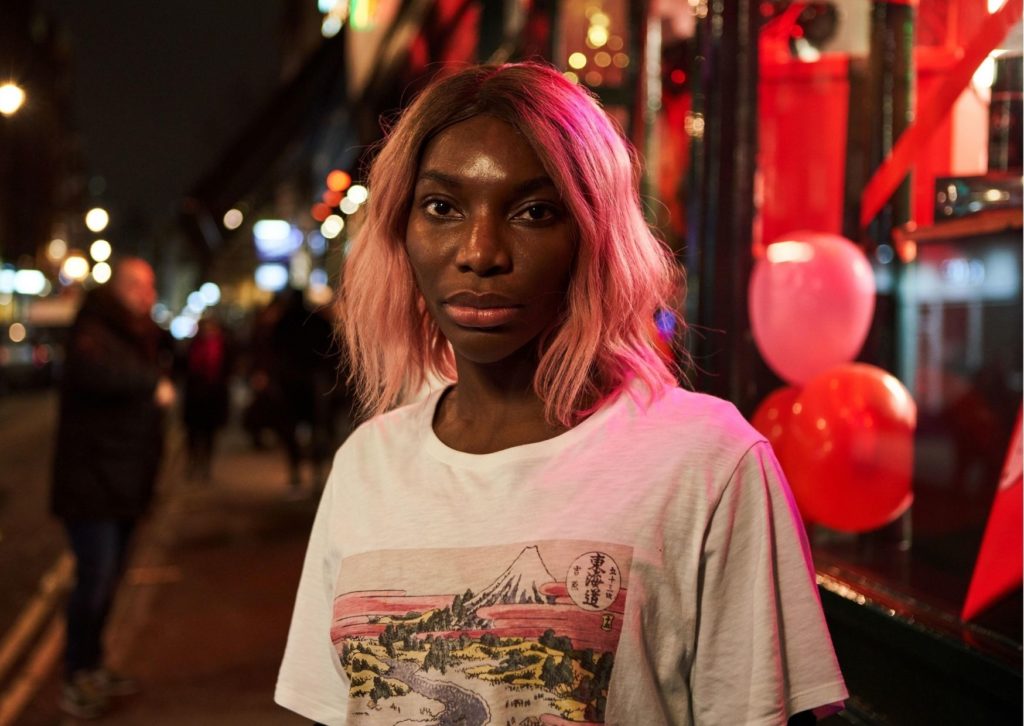
I May Destroy You
Michaela Cole wrote 191 drafts of I May Destroy You; and It’s clear just how much blood, sweat, and tears were poured into every single episode. The 12-episode series is a fictionalised account of her own real-life experience as a victim of sexual assault.
Cole’s fictional counterpart, Arabella, whom she plays in the show, is sexually assaulted in a London pub. This skillfully written masterpiece shows how trauma can change your life irreversibly, forcing you to reassess everything. It affects our relationships, our work, and how we function in everyday life.
I May Destroy You depicts how even when you ‘put on a brave face’, sexual assault can lead to a rapidly deteriorating state of mental health – this is reflected in some borderline absurdist scenes in the show. By looking at rape and exploring other avenues of consent through a heartbreaking and sometimes bizarre lens, you as a viewer are compelled to reexamine things.
Where to watch: HBO, BBC One
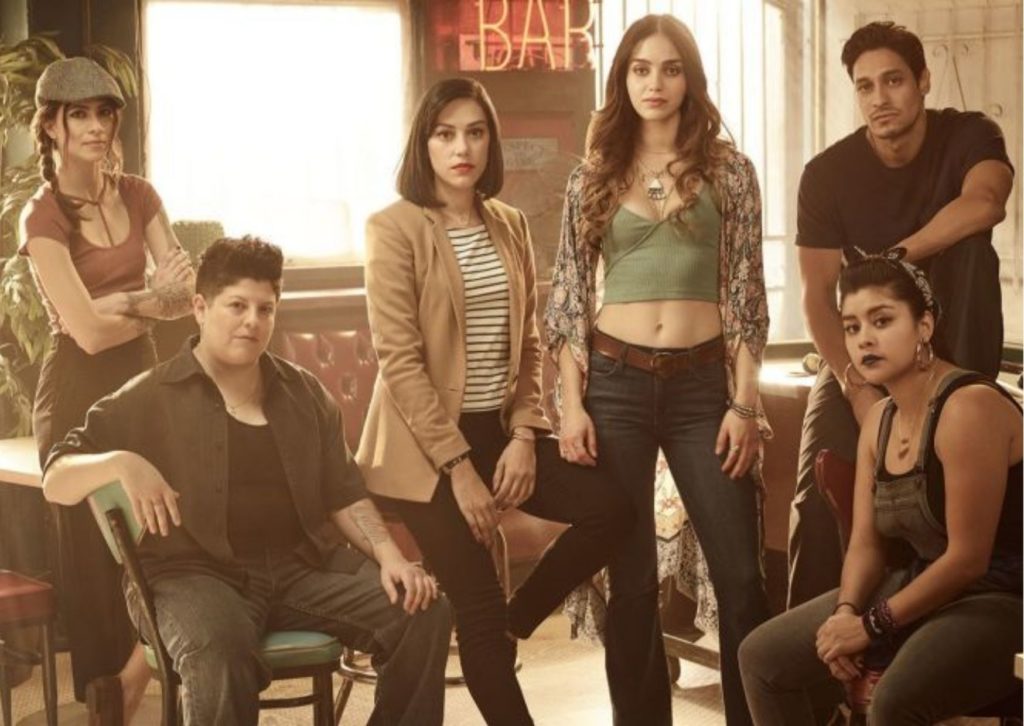
Vida
Vida is another favourite of mine. This comedic melodrama follows two estranged Mexican-American sisters from East LA. They’re brought together by the death of their mother. After inheriting their late mother’s bar they discover that she was a lesbian. Along with the bar, the sisters inherit their mother’s widow, the endearing Eddie, an old-school butch bartender.
Despite being sisters, they couldn’t be more different. One is a narcissistic party girl, the other is what you might call a stoic lawyer who keeps to herself and has a queer secret of her own. The popularity of this show is a big deal for queer and Latinx representation. Vida touches on queer issues, homophobia, consent, female sexuality, Mexican-American identity, and the appalling effects that rapid gentrification can have on communities.
Vida is a must-watch for anyone who feels the lesbian-melodrama void (lingering from the L Word days) has never quite been filled.
Where to watch: Amazon
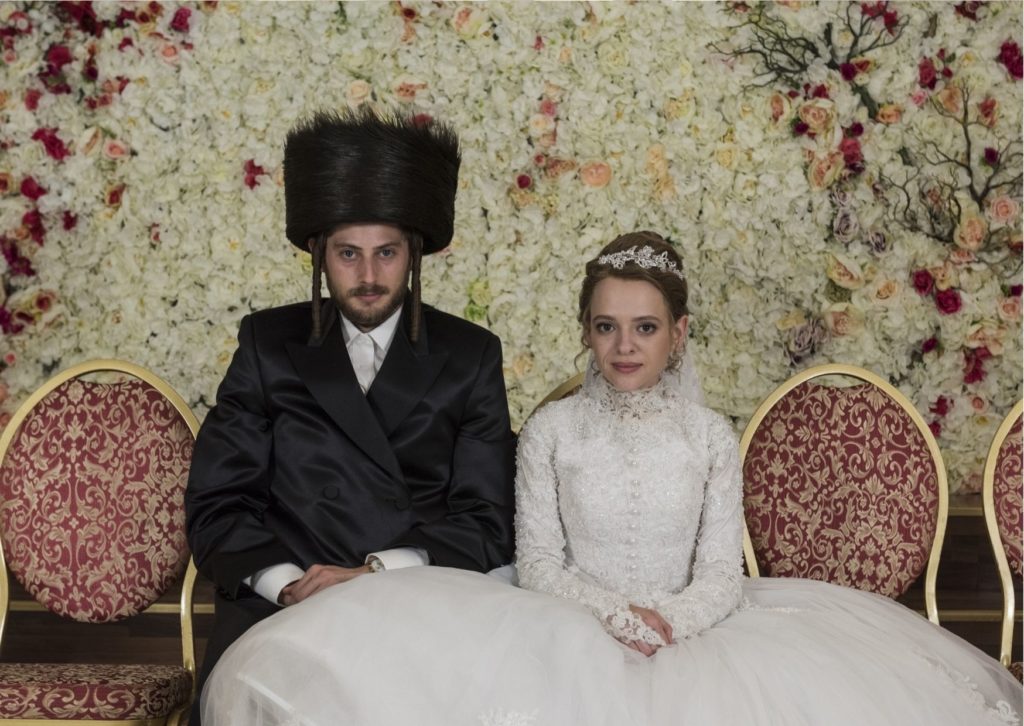
Unorthodox
In this Netflix drama, a young orthodox Jewish girl named Esther flees an arranged marriage in New York and escapes to Berlin. While in Berlin, she befriends a group of musicians who take her in under their wings. There’s a lot to unpack in this show, it’s a compelling drama that is sometimes difficult to watch and at other times, extremely heartwarming.
I think one of the most interesting things about watching this show was finding out about a community I know very little about. Unorthodox explores the role of women in orthodox Jewish communities. Esther is expected to produce babies by having forced sex in an arranged marriage. This begins to chip away at her mental health until she has no other choice but to escape. Unorthodox is a painfully beautiful story as Esther finds her courage in the face of oppression.
Where to watch: Netflix
Little Fires Everywhere
Set in 1980’s Ohio, this amazing little mini-series is short but drives a strong narrative around race in suburbia. Starring Reese Witherspoon as Elena and Kerry Washington as Mia, you could easily binge this in a day and be left wanting more.
In this series, Mia is a young black mother, a nomadic artist, fleeing a mysterious past – with her, is her daughter, Pearl. The pair arrive in an idyllic Cleveland suburb where keeping up appearances is vital. On arrival, they are befriended by local do-gooder, resident, and real estate agent, Elena. Elena rents them their home and soon Pearl becomes friends with Elena’s children. It’s not long before tensions rise and drama unfolds. The show depicts issues around race, class, and privilege as their families (and their worlds collide).
Where to watch: Amazon
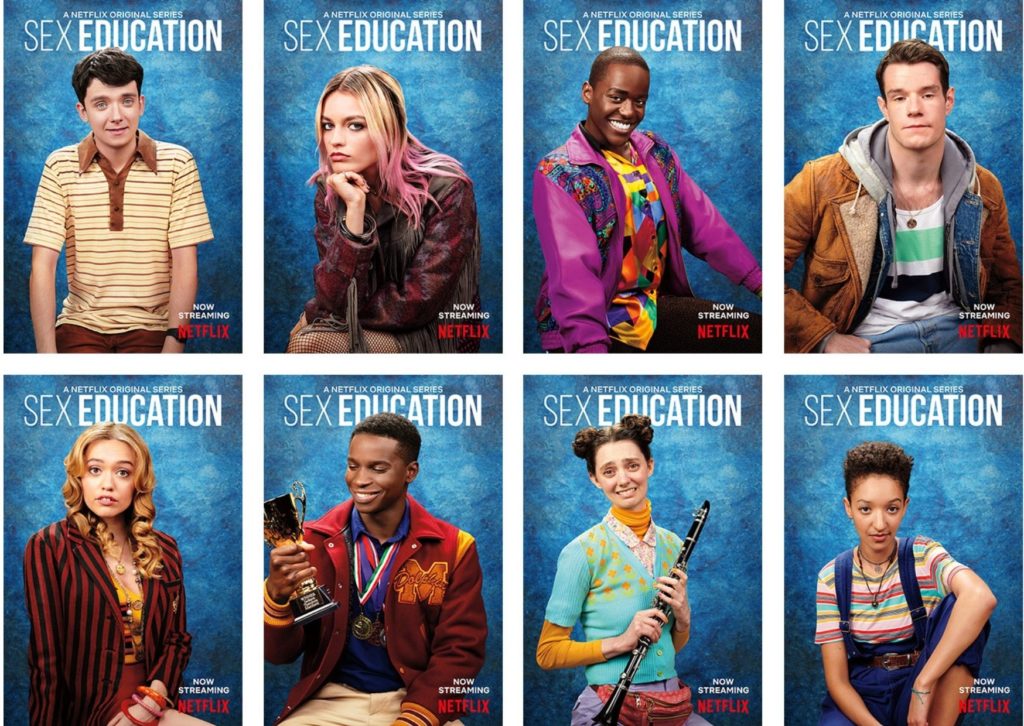 Sex Education
Sex Education
On a much lighter note, Sex Education is about a bunch of horny teenagers in a small town in England who are just trying to figure their shit out when it comes to sex. One kid, Ottis, whose mother is a sex therapist (played by the amazing Gillian Anderson), unwillingly becomes an unofficial sex therapist to his peers.
The show focuses on how sex, expectations, and desire affects teenagers on a social and psychological level. Overall it’s the kind of sex-positive show that teenagers need. There’s no judgment, Ottis helps them understand that everyone is different when it comes to sexuality and desire. With hilarious dialogue and a fantastic diverse cast, it’s a funny show with a lot of heart. Honestly, this is the type of show many of us wish had been on TV when we were teenagers.
Where to watch: Netflix
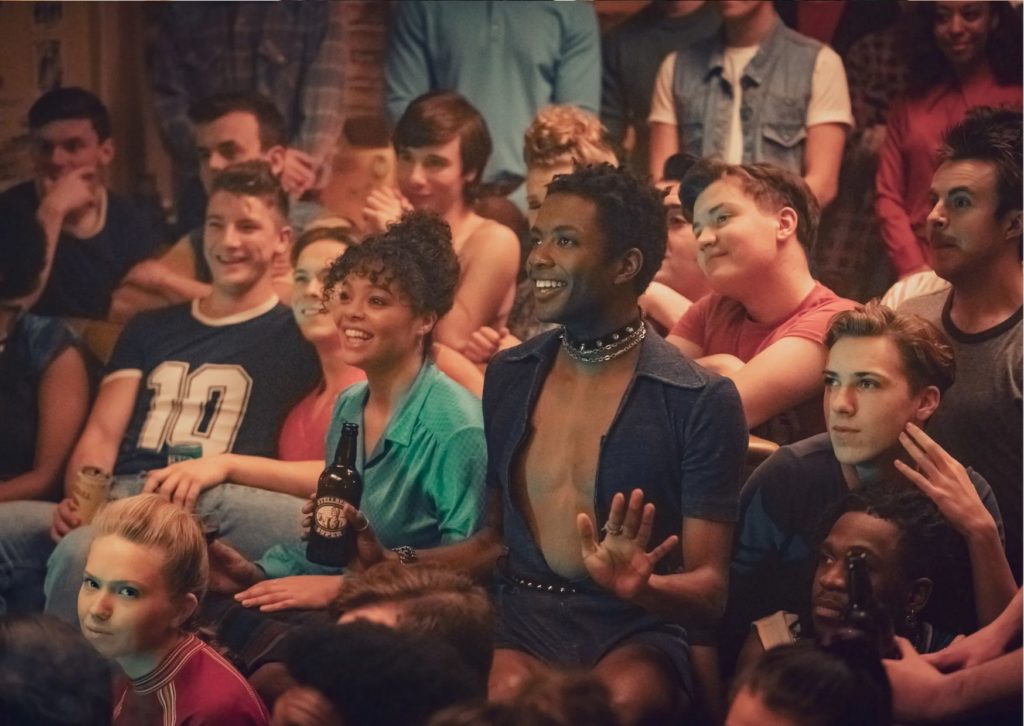
It’s a Sin
If you’re going to watch Channel 4’s It’s a Sin, have the tissues on hand because you are otherwise NOT prepared for just how many heartstrings this show is capable of pulling. Set in 1980s London during the AIDS crisis, It’s a Sin follows a group of young friends who are kicking off their adult lives.
Their vibrant, fun-filled, loving community is rapidly being ravaged by HIV along with queer communities around the world. We see how young men’s families disowned them because they had a ‘gay’ disease, how HIV victims were shunned and dehumanised. We see the disgraceful reaction of the media and the government’s failure to handle the crisis.
It’s a Sin has the power to make you fall so in love with all of the characters in such a short time. It’s a really beautiful story, overshadowed by the harrowing tragedy to come, so be prepared to laugh and cry (unless you are actually dead inside).
Where to watch: All 4
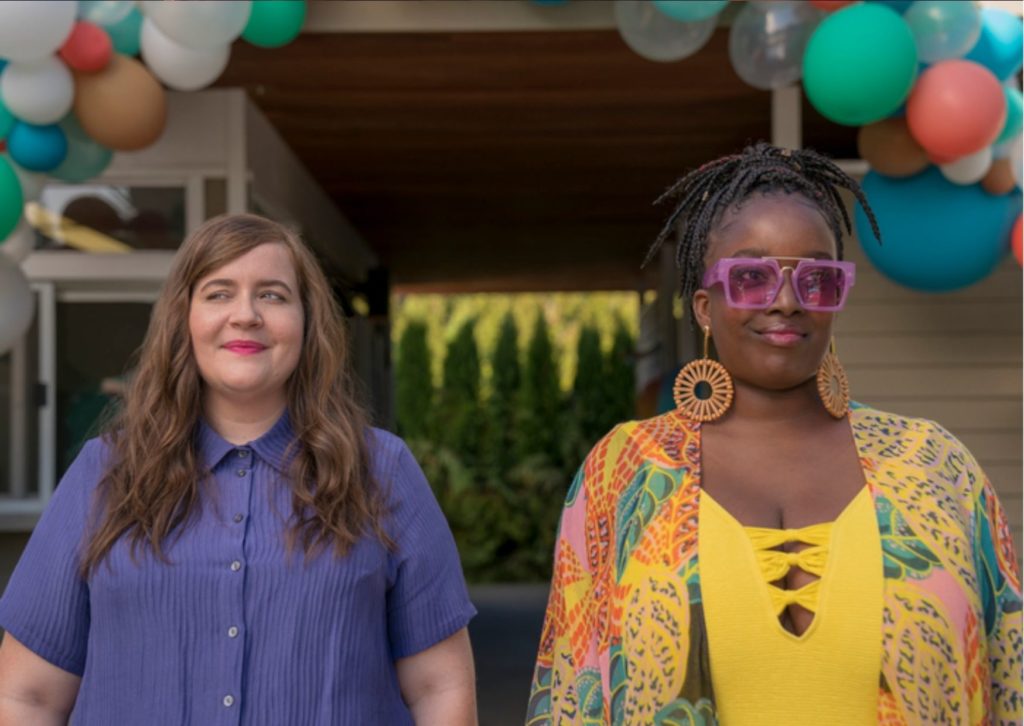
Shrill
Shrill is kind of a dark horse, it’s not a super well-known show as far as I can tell. It’s about a young woman, a journalist named Annie who happens to be fat… She’s like “Yeah, I’m fat. So what?” and too right. Nobody should be shamed for their body. Unfortunately, it seems as though there will always be bias in our culture against those who don’t fit in. Especially those who don’t fit the patriarchal beauty standards that are systematically forced upon women every. single. day.
When I watched Shrill, it got me thinking that I have never really watched a television show that had a fat lead character – who wasn’t just there to be the butt of a joke. The show is witty, smart, and feels authentic. It’s not just about Annie’s weight but finding her self-worth and changing her life for the better, without having to change her body.
Being fat is not something to be ashamed of, because it’s nobody else’s business how much you weigh. Different kinds of bodies are something we need to see more on television.
Where to watch: Hulu
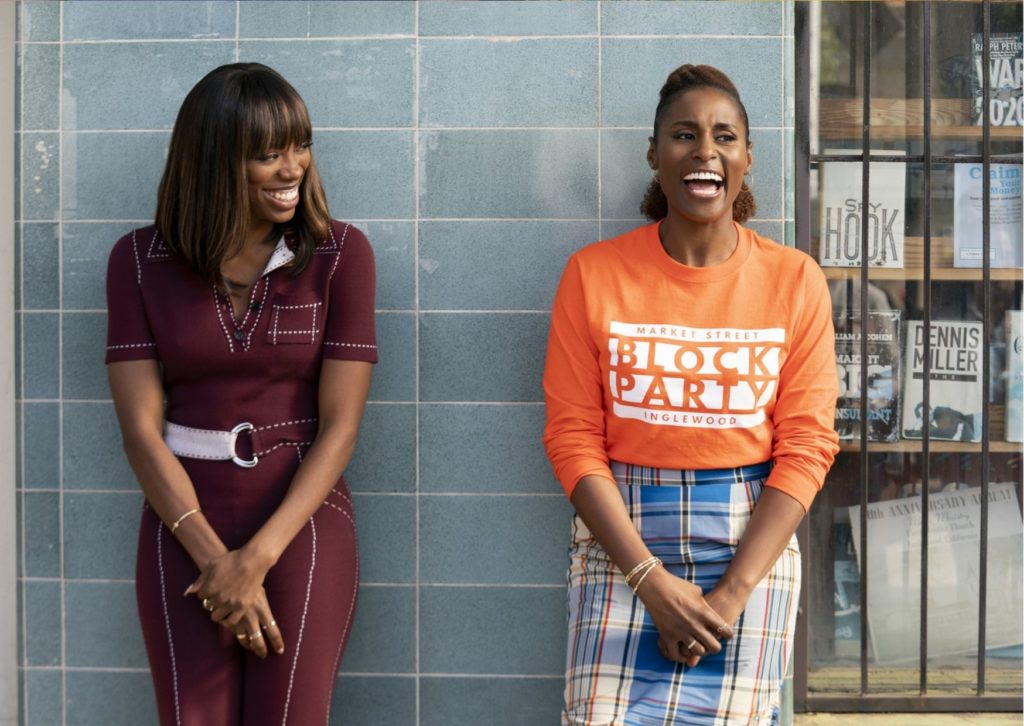
Insecure
In Issa Rae’s Insecure, Issa tries to navigate relationships, friendships, and her career, or lack of in some cases. Living in LA, she’s trying to get herself together but it’s not going so well. She’s anything but perfect, in fact, she can be a bit of a fuck up – this is why I like her.
Insecure is a realistic depiction of leaving your 20s feeling unfulfilled. It looks at the modern black female experience and the complexities of female friendship in a way that no other show does. As relationships fizzle out and friendships drift apart, it feels authentic in its structure, in its dialogue, and its casting. Oh and have Shazam ready because there’s a ridiculously good soundtrack to boot.
Where to watch: HBO
Pose
Pose is set during the AIDS crisis, but this time across the pond in New York City. This series created by American Horror Story’s Ryan Murphy, centres on the queer ballroom subculture of the 1980s. If you’re unfamiliar with ballroom culture, check out the unbelievable documentary Paris is Burning. This community was a space where queer people, particularly African-American and Latinx, congregated and performed for prizes and trophies. It often consisted of ‘houses’ which were ‘families’ of people who would support each other, live together and perform together. Often they dressed in drag or overexaggerated outfits mimicking the lives of the middle class, the rich, the straight, white, and cis-gender world that seemed so far removed from their reality.
There was lipsyncing, dancing, posing, and modelling. Many of the phrases and ideas from Ru Paul’s Drag Race come from ballroom culture (Jiggly Caliente makes a guest appearance in the show for any Drag Race fans). The best thing about this show is that it casts real trans women, opening up opportunities for these women to succeed (Indya Moore for instance has since starred in Queen and Slim and the latest `Escape Room‘ movie). This show really illustrates how ostracised queer people found community in each other. They faced many trials and tribulations: poverty, sickness, the dangers of sex work, but they faced it together, as a family. Pose is camp, and it’s really fun at times. The costumes are amazing and I adore so many of the actors. It has all the feel-good vibes of ballroom culture but sadly, with the effects of the AIDS crisis looming in the background.
Where to watch: Netflix
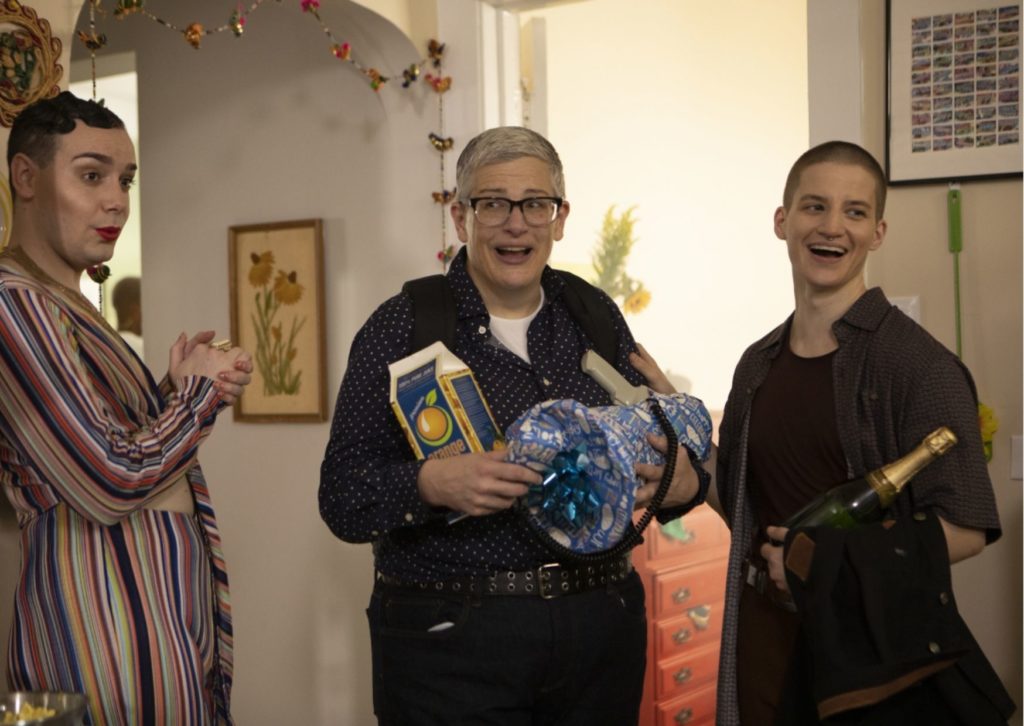
Work in Progress
Work in Progress is about a 40-something-year-old self-identified fat dyke who is trying to get by with depression and obsessive-compulsive disorder. She falls for a trans man and begins a transformative journey of self-discovery. The show explores mental health, body issues, and the parts of ourselves that we keep hidden away. Even as we get older, we still have a lot to figure out and we are always a ‘work in progress’ in a sense.
Shows like this move away from the glamorous lesbian drama of the L Word. Prepare for real bodies, real people in challenging, confusing, and difficult situations. You’ll fall in love with the show’s star Abby McEnany and you’ll never look at an almond the same again once you watch this (you’ll see).
Where to watch: Hulu
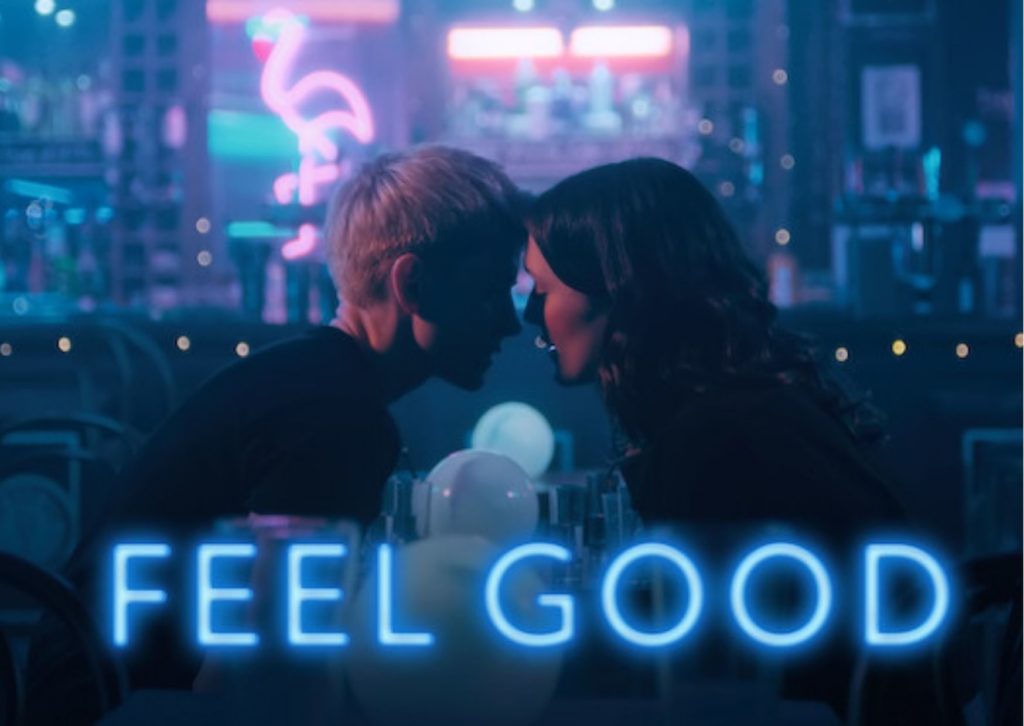
Feel Good
Feel Good is a semi-autobiographical comedy series by comedian Mae Martin. Mae is a recovering addict and a hopeless romantic who struggles to control her addictive behaviours. She gets into a kind of messy relationship with bisexual, not yet out girlfriend George. This show is funny, sweet, and queer as hell.
Mae has trouble connecting with people in a meaningful way due to past trauma and current substance abuse issues. Feel Good is about her trying to find herself in an unforgiving world. Feel Good’s serious subject matter is presented in a touching (and mostly hilarious way). The quick-witted Mae serves some seriously brilliant dialogue throughout.
Where to watch: All 4
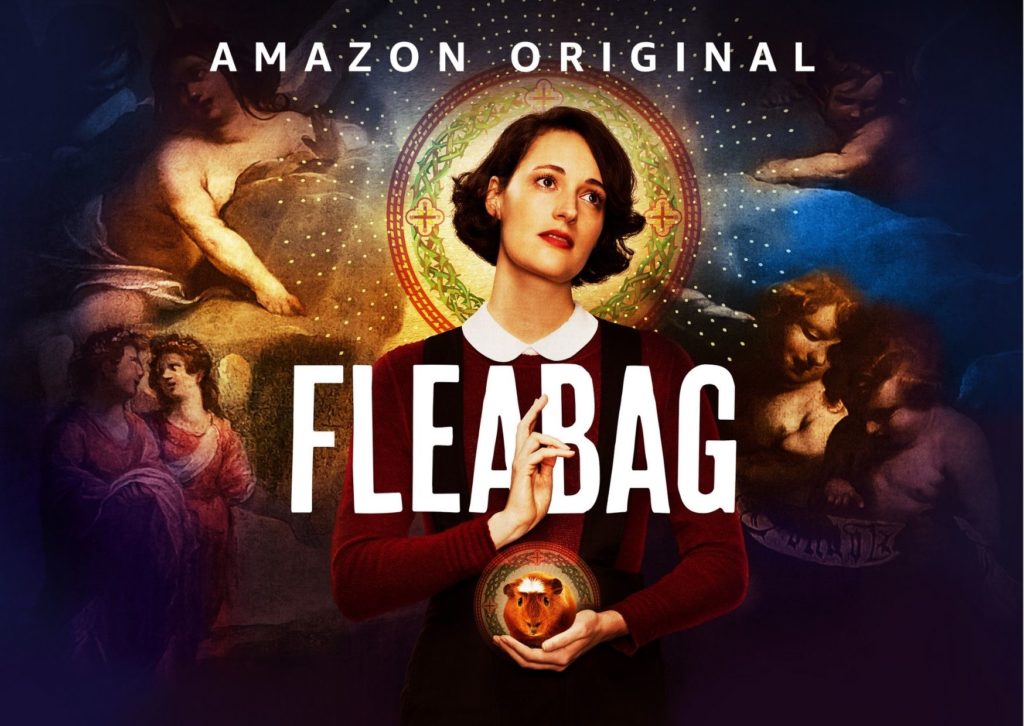
Fleabag
Fleabag is totally original, there is nothing else like it on television at the moment. Written by the show’s star Phoebe Waller-Bridge, it started out as a one-woman show. Fleabag (yeah, that’s her name), is a shitty person but a captivating character, who is at the best of times, a ‘bad’ person and oftentimes a self-proclaimed ‘bad feminist’.
How many lovable fuck-up’s have we seen portrayed by men? Now it’s time for us to fall in love with a questionable female character who just can’t seem to make any good decisions, especially when it comes to sex.
Where to watch: Amazon
Getting representation right
Is it really possible to ‘get representation right’?
Every day we learn more about the world we live in and the people in it. With an abundance of information readily available, even with significant cultural changes taking place at a rapid pace, we know more than ever about our fellow human beings. We can tune into Instagram stories, subreddits, Twitter threads, blogs, Youtube channels from all kinds of people at any time. But to see people outside of the Hollywood ‘norm’ being fairly represented in the mainstream media is a crucial step towards a more understanding and compassionate world.
Telling the stories of those who have been largely left out of mainstream television is a great place to start. Giving creators from all walks of life, the space and tools they need to create is even better. We’re all tired of seeing the same regurgitated narratives with the same tired characters. Let’s shake things up and make room for different stories to be told (and more importantly, let’s get the right people to tell them).
Let’s create television that entertains and informs audiences, giving people a better understanding of the lives of others. Let’s use the media to shape a culture of inclusivity and acceptance. Let’s not tip-toe around these things anymore, let’s make a whole lot of noise.
It’s normal to see predominantly white, straight, cis characters because it’s been normalised, by the higher powers, the media overlords, the fatcat producers, and stakeholders. But we’re starting to examine existing structures and we’re no longer ready to accept the status quo. We see young content creators constantly challenging it every day and that fighting spirit is carrying over into the mainstream, allowing for greater diversity in film and tv.
Cliched, generic television isn’t going anywhere any time soon. There are however more people who exist outside the dominant profile of the writer, director and producer, harnessing a newfound power and it makes for some pretty fucking good television.

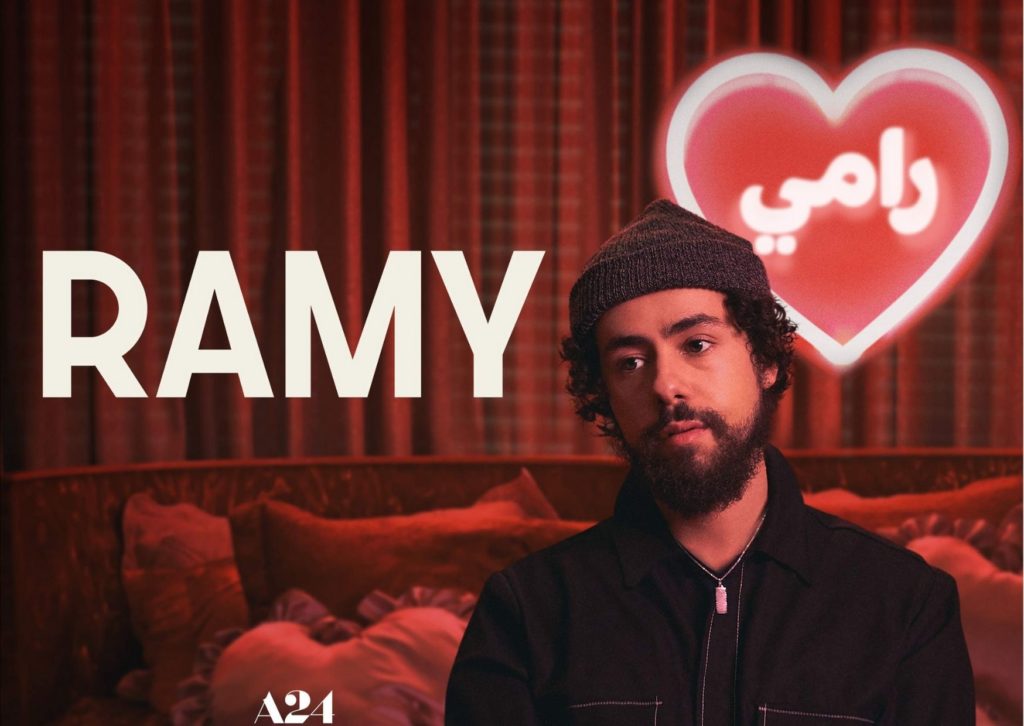
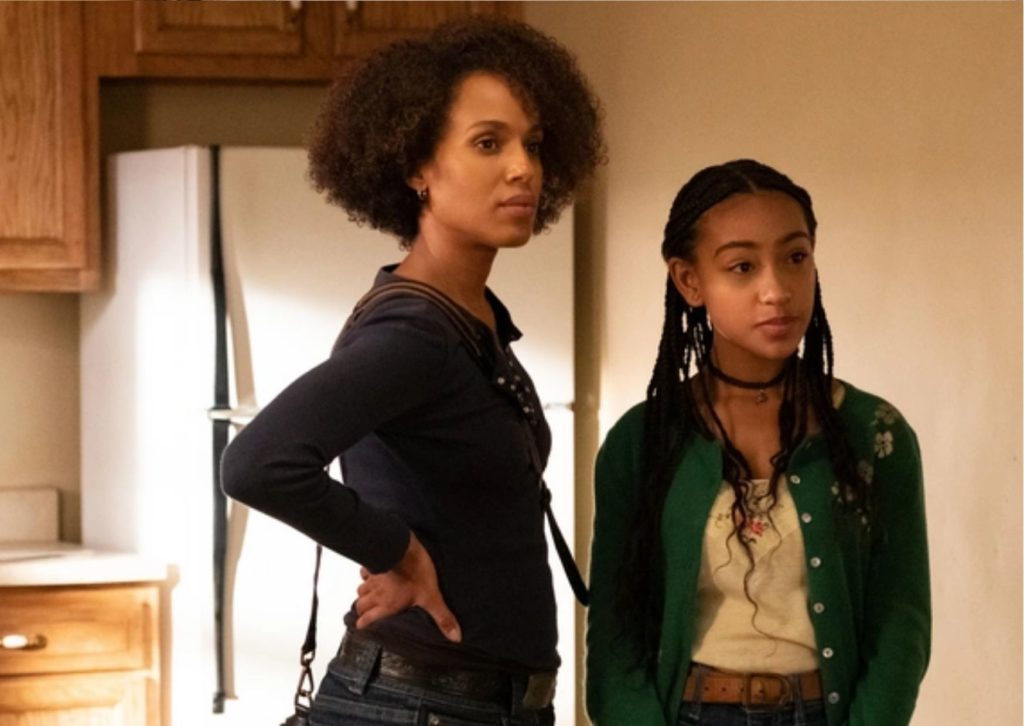
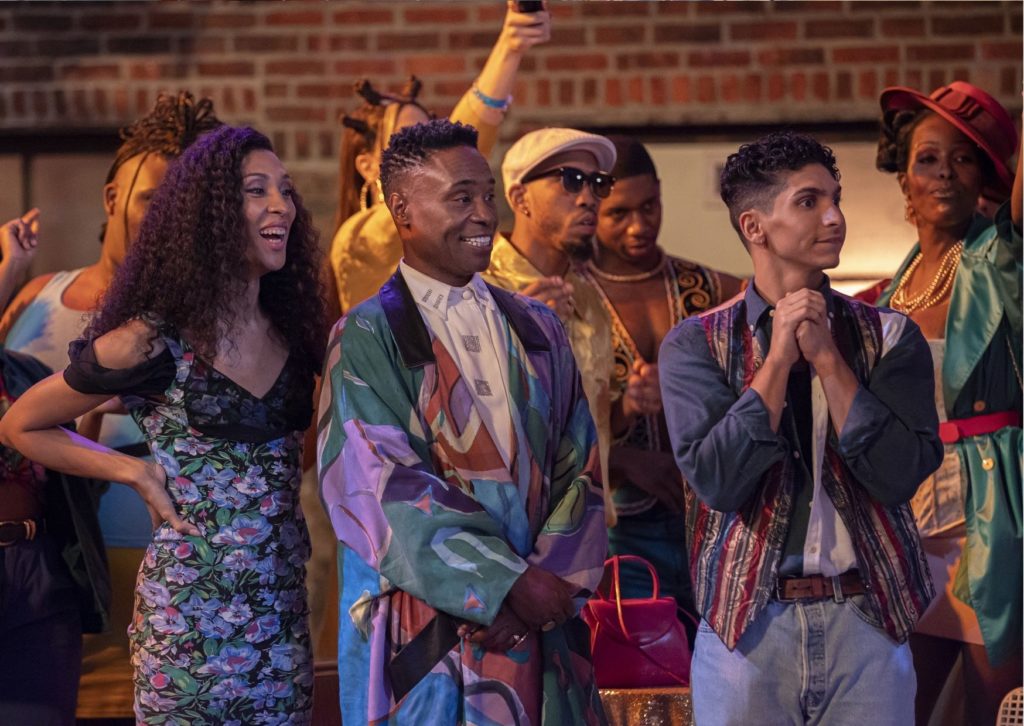
Pingback: FutureLearn course and other resources – Practice and Research